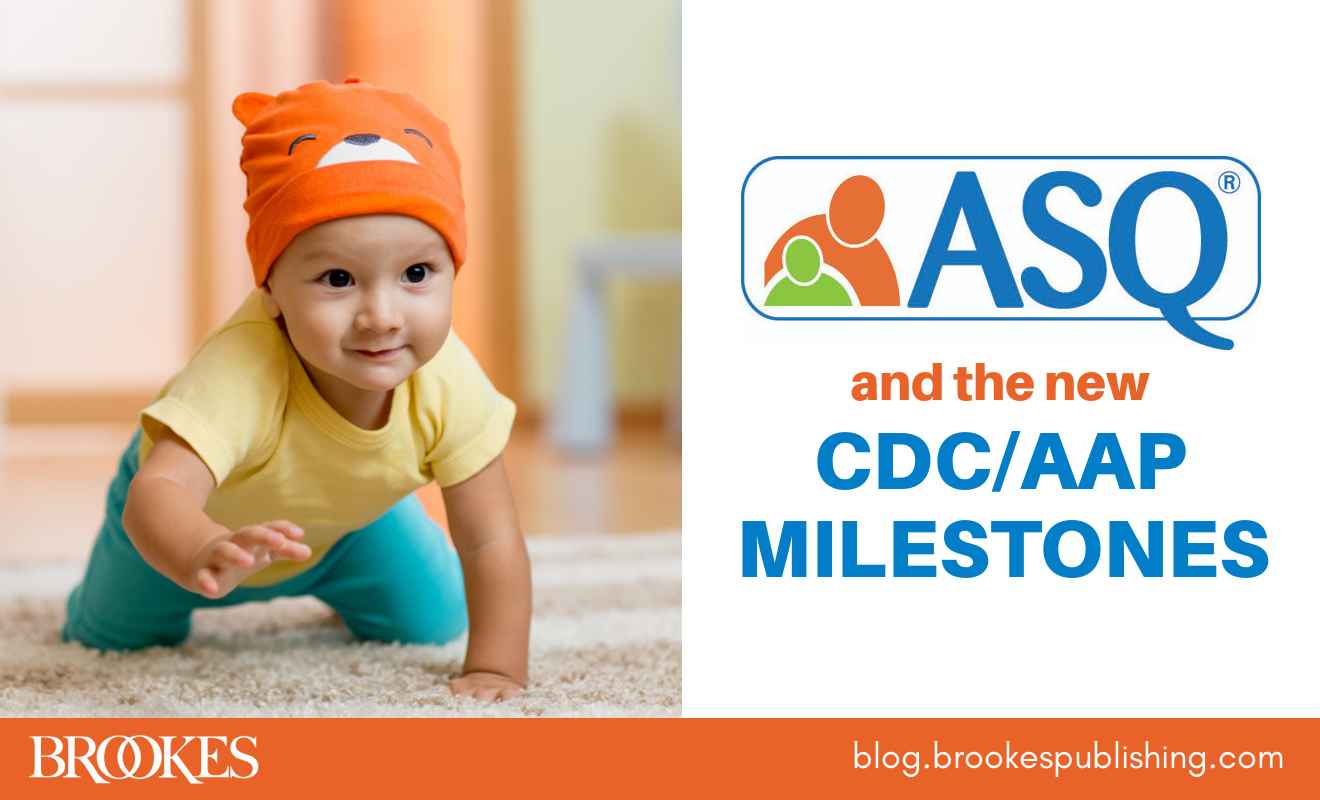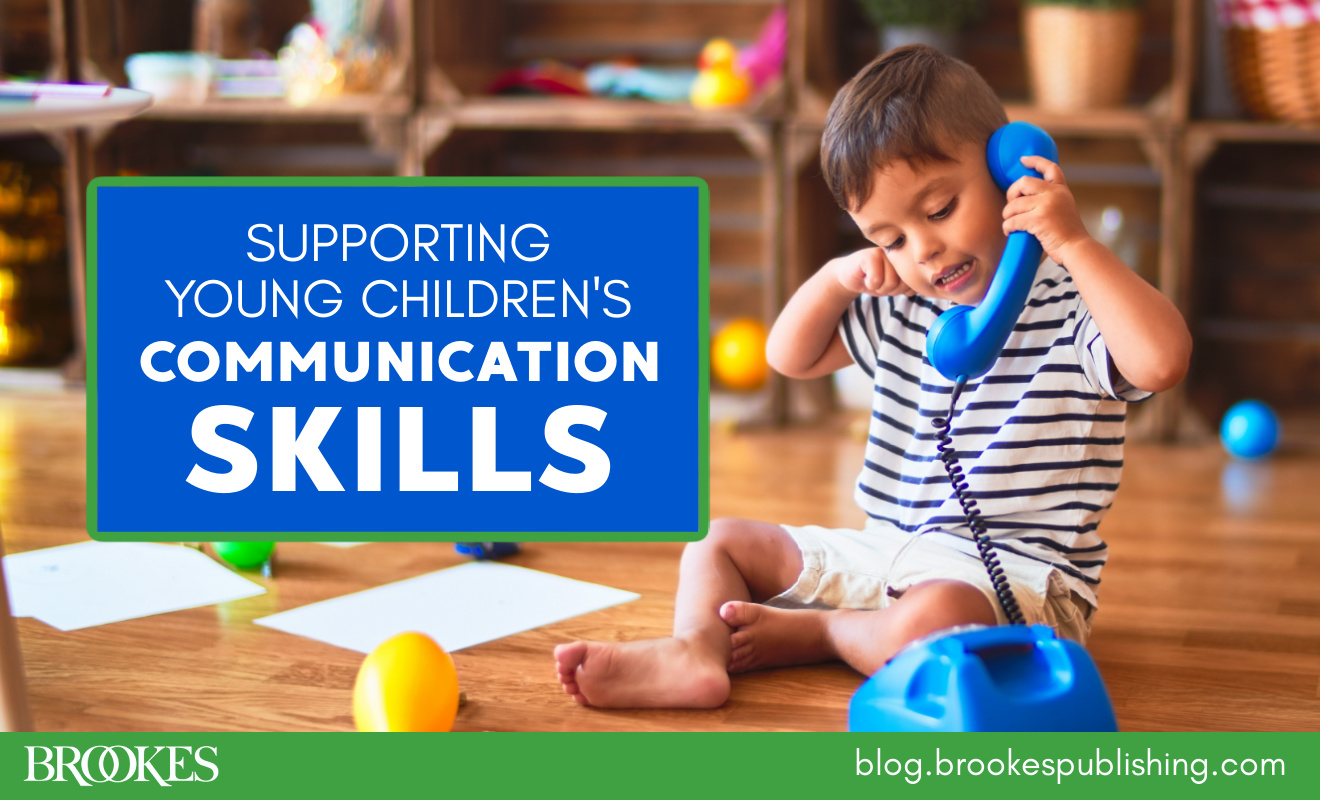Top early childhood organizations agree: Developmental screening is one of the best things you can do to get a child off to a great start in school and life. But what makes screening effective, and how can professionals get parents engaged and involved?
Today we have a true expert on hand to answer these and other key questions. Jane Squires, Ph.D., is a professor of special education at the University of Oregon and co-developer of the internationally renowned Ages & Stages Questionnaires® (ASQ®). Here, Dr. Squires answers five commonly asked questions about screening and development.
What is developmental screening, and why is it important for all kids to be screened in early childhood?
Developmental screening is a brief “snapshot” of a child’s current skills. Screening divides children into two groups: those who appear to be on track and those who appear to need follow up. It’s important to screen because the earlier a child receives needed help, the better the outcome. Screening should be done throughout the early childhood years to make sure a child is developing as they should.
“Screening” is a word that makes some parents feel a bit apprehensive. What would you say to a parent who’s afraid to have a screening conducted, because they fear their child might be judged or labeled?
Screening is an odd word. I think of screening as a way of “sifting” through lots and lots of children to find any that may need a little help to make sure they’re meeting their milestones on time. This sifting is important to find children who may need some extra help, as well as those who are typically developing and don’t need any help at this time.
Screening is best done in a universal way. This means that all young children between birth and school age should have their developmental skills looked at periodically in an objective way, using valid and reliable screening assessments, to figure out whether they need extra help and what areas they might need help in.
Some professionals and parents may be skeptical that a parent-completed screener (like ASQ) can capture an accurate picture of the child’s skills and development. What are the main benefits of parent-completed screeners, and why are they so accurate and reliable?
Parent-completed screeners are accurate and reliable when they are carefully constructed, with input from parents and other caregivers about what is important to them. If a screening measure asks about children’s current, observable behaviors, we know that parents are able to observe their child and report accurately about what they can and cannot do.
There are several benefits of using screeners completed by parents and other caregivers who know a child well. First, parents see their children across settings and observe them interacting with different people, so they have a good sense of what their child can do and what things they’re still learning. Parents also know how to get optimal behaviors from their child by making sure they are rested and comfortable and using toys and objects that are of interest. Finally, it’s been shown that parents learn as a result of completing developmental questionnaires, so they may be able to give their child better learning experiences as time goes on.
Parents also may wonder what they can expect after a screening is done. Can you walk us through what typically happens after a screening?
In most cases, the child will have a “typical” screening result, and programs should share this result soon after screening. If parents have concerns, and/or if the screening measure shows that a child’s milestones may not be on track, then the family and provider should discuss next steps together. In most cases, programs will suggest a referral to the early intervention or early childhood special education program for further assessment. This assessment might show the child is fine and should be screened again in four to six months. Or the assessment might suggest that the child should be referred for more supports and services to get their development back on track.
What are some of the best things parents can do to encourage healthy development between screenings? If a child has specific areas they need to work on, what should parents do to address those things?
Talking with your child every day as you go through your regular routines is one of the best things to do. Ask your child questions, sing a song together, comment on what you’re seeing or doing, take your child outside and talk about what you see. In addition to talking, reading books to your child helps with their language, understanding of the world, and relating to other people and things.
If your child needs specific help, there are activities that accompany each of the ASQ questionnaires that can give you some ideas for fun games and things to play with together. The ASQ Learning Activities also give some specific games and play ideas by domain or area. Looking at the ASQ items that your child couldn’t yet do—like writing with a pencil or bouncing a ball—can also give you some ideas about which skills to practice.
There are also many websites that feature parenting activities. You might want to take a look at:
***
Thanks to Dr. Jane Squires for answering these critical questions about screening and healthy development. To learn more about developmental and social-emotional screening, check out the ASQ website’s Resource Library for hundreds of free resources!
This article appeared in an extended form in the ASQ News & Updates newsletter. Sign up for the newsletter here to get original articles, tips, product updates, and more.
Stay up to date on the latest posts, news, strategies, and more!
Sign up for one of our FREE newslettersMore posts like this

6 Big Benefits of ASQ Online
March 16, 2023
ASQ and the New CDC Milestones: Your Questions Answered
April 13, 2022


Write a Comment
Your email address will not be published. Required fields are marked *
Post a Comment